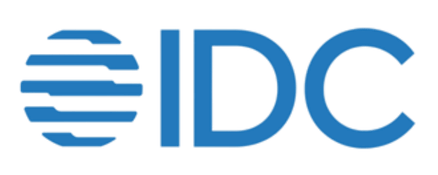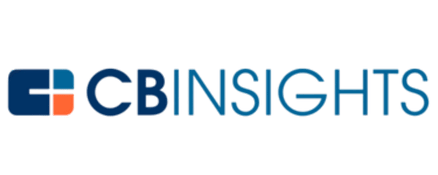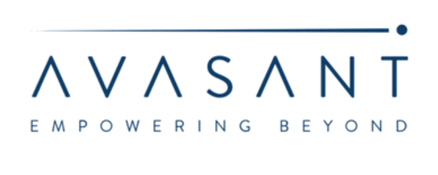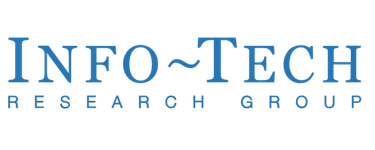The New Era of HR Regulation: Why AI Governance Can’t Wait
HR leaders are facing a reckoning.
Artificial Intelligence (AI) is transforming HR. But with great power comes great responsibility and emerging regulation. For HR leaders, the key question isn’t whether to adopt AI, but how to do so in a way that accelerates impact and mitigates risk.
The Business Case: Why AI in HR Is Irresistible (If Done Right)
Let’s start with the upside, because the potential is enormous:
- Cost reduction and efficiency gains — Many administrative and repetitive HR tasks (screening, scheduling, onboarding, compliance checks) can be automated, freeing HR teams to focus on higher-value strategic work and forming meaningful human connections.
- Faster hiring, better talent, right fit — AI can do more than accelerate recruiting, it can transform it. By analyzing vast candidate data and performance indicators, AI helps identify which candidates are most likely to succeed in specific roles and company cultures. This precision turns the age-old “needle in a haystack” problem into a scalable, data-driven process improving both the quality and longevity of hires while freeing recruiters to focus on what humans do best: building relationships.
- Better internal mobility and retention — Informed by data, predictive models can identify at-risk employees, recommend development paths, and match internal candidates to roles that fit their skills and aspirations.
- Personalized employee experience — AI can give personalized psychometric assessment feedback, onboarding, learning recommendations, and performance feedback, unlocking value from data organizations already have. In short: AI enables HR teams to move from reactive firefighting and manual effort to driving business performance through the strategic use of automation by allowing HR professionals to focus their efforts where it will make the most difference.
The Risks That Keep Chief HR Officers Up at Night
But the flip side is real and already playing out in headlines. Several high-profile missteps illustrate what can go wrong when AI in HR is left unchecked:
- Amazon’s scrapped recruiting engine
Amazon once developed an AI system to rate resumes but found it was systematically penalizing women. This is because the models were trained on historical resumes from previous applicants, the majority of whom were male. With females underrepresented in the training data, the models were not optimized to evaluate non-male resumes, resulting in resumes referencing women’s activities or all-women’s colleges being downgraded. Fortunately, this pattern was detected before the system was launched, and it was consequently shelved. Reuters
- Workday AI discrimination lawsuit (Mobley v. Workday)
HR and finance platform Workday is facing ongoing collective action over its AI-based screening tools. Led by Derek Mobley, the lawsuit alleges that Workday’s AI unjustifiably discriminates based on race, disability, and age, violating multiple US equal opportunity laws. The lawsuit, which was first filed in 2023 and has recently received conditional certification for the age discrimination claim, could set a precedent for how vendors are held liable for AI-driven discrimination in employment decisions.
- iTutorGroup sued by the EEOC over automated age discrimination
The EEOC sued three integrated companies operating under the iTutorGroup brand over its automated screening software that was set up to automatically reject older applicants. The companies programmed the software to unjustifiably reject female applicants over the age of 55 and male applicants over the age of 60, violating federal law and resulting in a $365,000 settlement.
These cases underscore four hard truths:
- Using AI or automated solutions does not equal a free pass. AI tools are held to the same standards as human decisions and other solutions, meaning it is essential that AI-driven and automated tools are tested for bias and not set up to automatically reject applicants based on protected attributes unless there is strong evidence of a job-related reason to do so.
- Third-party AI tools do not absolve employer liability. Ultimate liability for employment decisions often lies with the employer, even if they are using a tool sourced from a third-party vendor to help make their decisions. That doesn’t mean vendors are off the hook, though. Some laws also have specific provisions for developers, or vendors, of automated tools. Moreover, employers using vendor tools often expect vendors to support their compliance efforts and may rely on vendor-provided audit documentation.
- Bias is subtle, pervasive, and often embedded in historical data, not the result of deliberate intent. Even well-intentioned models can replicate historical and social inequities if not properly audited and calibrated.
- Regulators are catching up and enforcement is coming: Regulators are cracking down on biased automated employment decision tools through both existing equal opportunity laws and laws specifically targeting HR tech. In particular, laws are emerging requiring independent, impartial bias audits of automated employment decision tools (e.g. NYC’s Local Law 144)
Why HR Leaders Should Treat AI Governance as Strategic, Not Just Defensive
If you approach compliance as a cost center, you’ll fall behind. The most forward-looking organizations are using regulation as a lever to establish trust, transparency, and competitive differentiation.
As regulatory pressure intensifies, embedding governance into AI workflows gives HR a sustainable way to manage risk, reduce manual audits, and maintain audit trails.
Here’s how HR leaders can transform compliance into a business advantage:
In short: with the right infrastructure and oversight, HR can move from reacting to risk to actively shaping a trustworthy, scalable AI ecosystem.
How Holistic AI Helps HR Leaders Navigate This Frontier
Holistic AI specializes in helping organizations make their HR systems both powerful and compliant. Here’s how we can partner with you:
- Full HR-Tech Inventory & Risk Assessment: Holistic AI discovers and then creates an inventory of the AI-powered HR tech tools you are offering, developing, or using, including details about their deployment locations, how they work, and accountability.
- Identify Relevant Laws and Establish Notification Procedures: Holistic AI reviews the relevant laws in the jurisdictions you operate in, including NYC Local Law 144 and the EU AI Act, to determine the compliance actions required.
- Independent Bias Audits & Regulatory Impact Reviews: Holistic AI performs robust, defensible audits of your HR tech that are aligned with evolving legal standards.
- Governance Framework & Playbooks: We help embed policies, decision protocols, human oversight rules, and escalation pathways that scale across global HR operations.
- Continuous Monitoring & Explainability Tools: We implement systems for ongoing LLM drift detection, fairness monitoring, and explanatory reporting, so you never drift out of compliance unknowingly.
- Training & Change Management: We help HR teams and business stakeholders understand the limits and strengths of AI tools, when to override them, and how to communicate transparently with employees and applicants.
We’ve audited hundreds of HR systems across industries, helping our customers transform compliance from a regulatory requirement into a source of competitive advantage.
Call to HR Leaders: Don’t Wait Until It’s Too Late
The regulation of AI in HR is no longer speculative; it’s real, active, and growing more complex. Yet many organizations still treat it as someone else’s problem.
If your company uses AI in recruiting, performance evaluation, promotion decisions, or employee analytics, now is the time to act. Waiting risks not only legal and reputational damage, but losing the opportunity to build the most trusted, high-performing culture in your industry.
Reach out to Holistic AI today. Let us show you how to turn compliance into value, protect your organization, and lead HR into a future that is both intelligent and fair.




